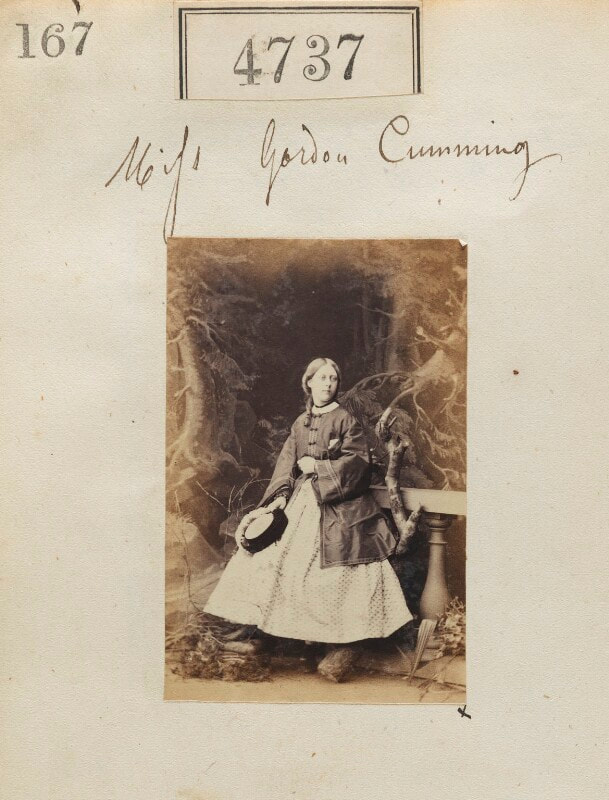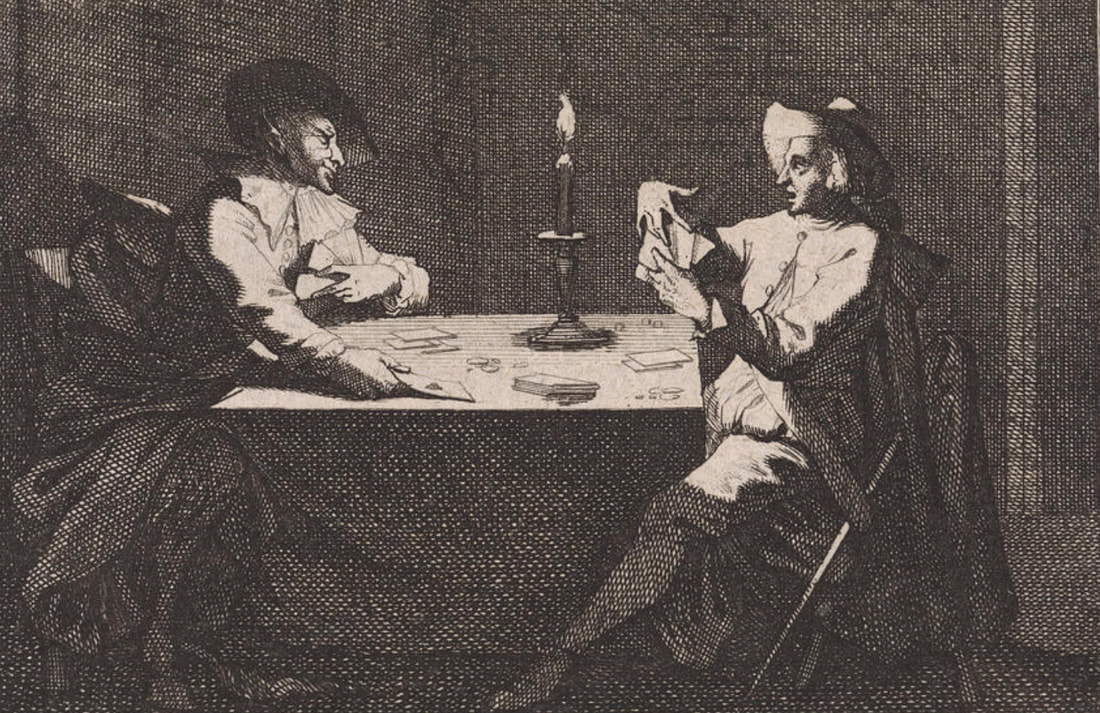Hon. Mrs Willoughby's Poem
|
The story of Kinnaird of Culbin making a pact with the Devil to play cards was well known in the years after the sand storm, and the legend grew throughout the eighteenth and nineteenth centuries.
Eliza Gordon Cumming was the daughter of a local laird, Sir Alexander Penrose Gordon-Cumming of Altyre. She was born in 1847 and grew up at Altyre House to the south of Forres. In 1869, she married the Hon. Digby Willoughby, later Lord Middleton, and lived with him at Birdsall in Yorkshire. Eliza clearly knew of the stories of Culbin well and, in the early 1870s, she penned her poem about the Culbin Sandhills. It is an interesting account, not least because Eliza used good Scots Doric vocabulary, something that is relatively uncommon for a woman of her class at this time. Eliza later became Lady Middleton and died in 1922. She verses the story of the pact between Kinnaird of Culbin with the Devil, and how the two are still playing their game of cards in the heart of the largest mound. |
The Culbin Sandhills by Eliza Willoughby
Oh then Kinnaird lauch’d loud and long: “Ye fule, wife, say your say, For I would play wi’ the deil himsel’ Until the judgment day.” And ‘neath the sand that fearfu’ game Is played and played away; For the deil and Culbin are sitting there Until the judgment day. |
|
|
|





